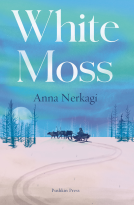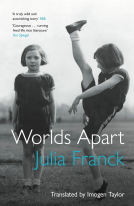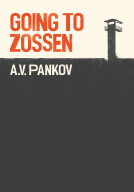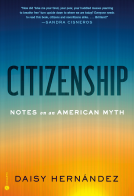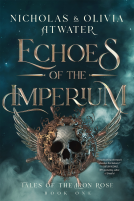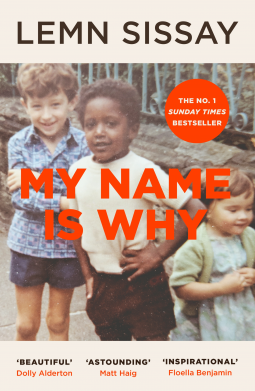
My Name Is Why
by Lemn Sissay
This title was previously available on NetGalley and is now archived.
Send NetGalley books directly to your Kindle or Kindle app
1
To read on a Kindle or Kindle app, please add kindle@netgalley.com as an approved email address to receive files in your Amazon account. Click here for step-by-step instructions.
2
Also find your Kindle email address within your Amazon account, and enter it here.
Pub Date Jan 26 2021 | Archive Date Jan 31 2021
Canongate | Canongate Books
Talking about this book? Use #MyNameIsWhy #NetGalley. More hashtag tips!
Description
How does a government steal a child and then imprison him?
How does it keep it a secret?
This story is how.
How does a government steal a child and then imprison him?
How does it keep it a secret?
This story is how.
Advance Praise
'A lyrical, painful and yet hope-filled memoir . . . Shattering, light-searching'
Observer
'Searing . . . Unputdownable . . . My Name Is Why is authentic and beautiful, a potential game-changer in public attitudes to children raised in care. It’s about bureaucratic cruelty and what happens when love is absent. Don’t miss it'
The Times
'An extraordinary story'
Sunday Times
'The most amazing thing about this book is that it’s not made up. This actually happened. It is an incredible story'
BENJAMIN ZEPHANIAH
'I have never read a memoir like it. A blistering account of a young life in the hands of neglectful authorities. It’s a quest for understanding, for home, for answers. Grips like a thriller. Astounding'
MATT HAIG
'The great triumph of this work comes from its author’s determination to rail against what he rightly diagnoses as this institutionally endorsed disremembering of black and marginalised experience. It is a searing and unforgettable re-creation of the most brutal of beginnings'
Michael Donkor, Guardian
'Utterly devastating and beautiful . . . Breathtakingly written'
DOLLY ALDERTON
'This is a deeply moving memoir that speaks with incredible poeticism. A staggering exposé of colonial theft and abandonment, this book is grippingly heartbreaking'
DAVID LAMMY
'A fascinating memoir . . . So powerful'
ELIF SHAFAK
'The engaging transfiguring truth of My Name Is Why is like a baptism of truth – leaving you washed clean of lies and reborn in love. Profound in its kindness, intelligence and unselfish heart, this book is important and unputdownable'
JESSICA HYNES
'Searing . . . heartbreaking . . . Sissay has given us a blistering condemnation of the 'care' system – and his powerful voice asking 'why?' is raised on behalf of all children who have been its victims'
Daily Mail
'Remarkable . . . Sissay puts forward his side of his life story. It is sensational stuff told with an elegant restraint that leaves the reader feeling some of the hurt, bewilderment and anger that he has endured . . . My Name Is Why is a memoir of identity, race, neglect, family and the importance of home. It is also a testament to Sissay himself and his ability to survive, and later thrive. Above all, is it his redemptive chance to ensure that at long last the voice of the child he was is heard'
Sunday Times
Available Editions
| EDITION | Other Format |
| ISBN | 9781786892362 |
| PRICE | $16.00 (USD) |
| PAGES | 224 |
Average rating from 26 members
Featured Reviews
I love a good memoir and this one--written by the poet, playwright, educator and author, Lemn Sissay--was unlike anything I've ever read.
Sissay, an Ethiopian, was given up for adoption by his mother at birth. And he tells us the story of his journey through the UK foster system--from infancy until he was nearly 18. But he does so by integrating copies of actual legal documents and case workers letters that are written about his childhood.
Not only do we hear from Sissay about his memories of growing up, feeling lost and alone, but we read the testimony of his foster parents and those from various care homes. Not only was he lied to about his birth mother, it is heart wrenching to witness the discrimination he faced.
For me, the book was a bit choppy in that I much preferred to read Sissay's memories and observations vs. reading the care reports. In some chapters, I felt like I was reading an abbreviated diary entry (this happened, then this happened). And then in other chapters, particularly when Sissay was older (and therefore had more pronounced memories), I was drawn into the story with his lyrical writing. After all, he is an amazing, award-winning poet. Most, if not all, chapters, begin with one of his own poems.
About the Book:
This is Lemn's story: a story of neglect and determination, misfortune and hope, cruelty and triumph. Sissay reflects on his childhood, self-expression and Britishness, and in doing so explores the institutional care system, race, family and the meaning of home. Written with all the lyricism and power you would expect from one of the nation's best-loved poets, this moving, frank and timely memoir is the result of a life spent asking questions, and a celebration of the redemptive power of creativity.
I'm grateful to Netgalley and Canongate Books for the advanced copy of this book!
 Nikki B, Book Trade Professional
Nikki B, Book Trade Professional
Lemn Sissay's memoir recounts his life as a UK child of the state, and his investigations into how he found himself ejected from his foster home at 12 and shepherded around to various childrens' homes. It's a stunning account of perseverance and survival, and provides shocking insight into adoption practices in the UK during the '60s and beyond. This book is at once compelling and poetic. Lemn Sissay's writing is passionate and questioning, and the reader very much feels like they are on this journey to discovery with him. The intercut letters and reports from his social worker, foster parents, 'the authority', and others add such a richness to the narrative, providing historical and emotional context. It's fascinating and frightening, all at once. A truly exceptional book.
 Annette J, Reviewer
Annette J, Reviewer
My Name is Why by Lemn Sissy is a brave , honest and heartbreaking memoir that shows just how badly a young boy was let down by the system and society that was supposed to have his best interest at heart. I had not read any of the author's poetry before but having read his story and seen the powerful way he uses words I am now keen to do so. I really enjoyed the samples of his poetry that were scattered throughout the book.
Lemn did not even know his real name until he was seventeen, he was called Norman by the family that fostered him from a young age, and until he sought out his birth certificate he knew nothing about his birth mother or father or how he wound up in the care of social services in the first place, in fact for many years he did not even know he was fostered. Growing up as the only Black child in a white family proved challenging, but for the first twelve or so years Lemn felt loved and accepted by his foster parents, and acted as a big brother to their children, unfortunately as he entered his teenage years that relationship broke down and he wound up in a care home. Reading about his feelings of abandonment and confusion at this time would melt the hardest of hearts, but I have to admire the clarity with which the author describes them. I was fascinated by the excerpts from the social worker's reports interspersed throughout the book , and how the same situation was described so differently in their accounts when compared to Lemns.
This short book is one I would highly recommend, with the warning that it will stir your emotions and tug at your heartstrings.
I read and reviewed an ARC courtesy of NetGalley and the publisher, all opinions are my own.
 Educator 710766
Educator 710766
After years of bouncing around foster care homes, Norman discovers his name is Lemn. So begins his quest for the truth, including a mother who loved him, life as a Black man, and all of the social systems that are designed to oppress him. This memoir reminded me of the importance of duality - Lemn finds love in the middle of heartbreak, determination in the middle of helplessness, and courage in the middle of real fear. A must read.
Thanks to Cannongate and NetGalley for the Advanced Reader's Copy!
Available Jan 26 2021
During summer of 2018, I worked with a foster care agency in Philadelphia, reading through case file after case file, calling guardian after guardian to remind them of upcoming doctors and dentist visits, filling hours in the dusty, moldy quiet offices in the middle of the summer heat. All of this to say that the pain and institutionalized tragedy in Lemn Sissay's "My Name Is Why" is unsurprising and yet emotionally touching. Interspersed with poetry, documentation and narrative, Sissy paints a portrait of growing up as an unwitting Ethiopian adoptee in a primarily white community.
Reading the social worker's reports feels oddly like deja-vu. When Sissay plainly states that "care workers are the most institutionalized", he struck a chord. It is often the agents of the state, the ones who think that they are out to change the system, that become most enamored with the mechanics of their system, unable to see its flaws or perhaps unwilling to change it. Like Sissay, many foster children internalize guilt and long for freedom. Unlike Sissay, most don't find the communities they belong to in the end. Haunting, evocative and education, Sissay's memorial should be read nationwide.
 Book Trade Professional 711403
Book Trade Professional 711403
A marvelously written and deeply harrowing account of a man’s forced entry into the foster care system in Britain and the consequences and tyranny of the Authorities of the British government. Extremely illuminating and necessary reading.
 Mandy J, Reviewer
Mandy J, Reviewer
Lemn Sissay has chosen to frame his story using the documents, reports and letters about his years in care that he finally managed to get hold of, after a struggle, from the authorities. These documents are reproduced verbatim in facsimile and I found this a remarkably effective way of telling what happened to him. To read these reports, to read what those in charge of this child actually thought and said is a powerful way to explain how someone like Lemn can get caught up in the system and how his own needs could be ignored or not thought relevant. What I particularly admired in this memoir is that there is very little rage or bitterness in evidence – emotions he had every right to feel. And how non-judgemental and balanced is his account. Because on the whole, these people “caring” for him were more misguided than evil, more misunderstanding than wicked and I’m sure never meant to do him any harm. However, harm was done, and all credit to Lemn Sissay that he managed to build a life for himself in spite of his inauspicious beginnings. He pays credit to those who did help him, and even manages to be even-handed when talking of his foster-parents who inexplicably rejected him when he was 12. All in all, this is a triumph of life-writing, and I’m left with an enormous feeling of respect for him. Powerful, moving, thought-provoking and illuminating.
 Hilary W, Reviewer
Hilary W, Reviewer
Many readers will have heard of the poet Lemn Sissay and may have heard him perform. Few may have realised that he was “raised” through the “care system” and still carries huge scars from this life. But in the midst of his later years there he started to turn to poetry to ground himself – and it is that deep creativity and voice that is used in this memoir to tell the realities and casual brutalities he encountered. Knowing little about his family background, after many years he managed to access his 18 years of “official records”. Copies of those are given in this book, as he transcribes the texts for the reader he also talks to his experiences – the parallel reality of his life that ran alongside them.
This is not a comfortable read. Lemn (a child of several different names) who was born in 1967 to an Ethiopian mother and an unnamed father spent his early days in a “mother and baby home” in the North West. When his mother returned to Ethiopia without agreeing to his adoption he fell into the care of the local authority – and a legal limbo where he could not be easily adopted. He was therefore placed in a long term foster placement. Unable to remember anything else this became his “real family” for nearly twelve years. When that placement failed he was moved to a “family unit” and when his behaviour became more erratic, as he challenged the rules and came to the attention of the police, he found himself as a resident in a “reform school” that contained not just the distressed but young remand or convicted residents. This was a locked unit and was run on strictly regulated lines. Lemn did have a supportive social worker who within the resources tried to fight his corner within the constraints of bureaucratic life. He also had the charm and capacity to reach out to people who would help him regardless. Eventually he would acquire his own flat and start to build a positive and creative life for himself.
But through it all it must be remembered that this was a very different “time”, social “norms” were different and more hide bound, children were expected to be obedient. A lurking issue would be Lemn’s colour, the reactions of people to this, the discriminations. But ultimately his need to find his “family” surfaced and roots that were bedded in a different culture to the one in which he was raised in his early years.
Using the official documents “as was” the reader is immediately taken to a different time with different procedures and understandings. It may be that some older readers will recognise the procedures, rules and processes of that time. They had in many way grown out of Victorian (and older) values. Social workers still had little specialist academic training; experience built promotion was largely experienced based – with men favoured. The hidden elephant in the room would always be finance – not regulated by front line carers. The care system had its own logic at the time, but one that is now seen as seriously outdated and often unfit for purpose and long term well being of the children involved. Children would be expected to fit in to their placements – and those might not always be suitable. This was trying to make the best of a less than ideal situation a child was in, but there were clear failures and a person only has one life.
By twelve for a variety of reasons Lemn was undoubtedly struggling with his first family placement and was eventually thrown out of it. He talks positively of what was offered to him there, but it is possible to see the pain of this rejection and that he felt that the family ultimately failed him. Families are not of course perfect, many far less than that, even before you encounter one where parent are paid to care for a child. His mixture of loyalty and disillusionment are a telling indictment of the family and how it impacted on him for better and worst. But neither is he slow to admit to the problems that he caused and not only to himself. Bedding this story very firmly in himself as a child growing to adulthood he gives the salutary reminder that the “process” is around the care of real children. Children with all their vulnerabilities and need for security and protection. Yes, he has surmounted the difficulties to become a creative person who reaches out to offer connections and support to other people, often unknown. But the book makes it clear that this is probably through the actions of kind individuals not the institutions he was bedded in – he is what he is “in spite of” not “because of”. An extraordinary man.
 Helen M, Bookseller
Helen M, Bookseller
As a fellow former inhabitant of Hulme, Manchester, Lemn Sissay was a familiar face around The Crescents and local hangouts, his poetry already starting to send his star into the ascendancy. So it was with much fascination that I picked up his exploration of his childhood - a life spent initially in a foster home, and then a series of care homes. It's heartbreaking stuff - from his growing up calling his foster parents Mum & Dad, to their subsequent rejection of him, throwing him into the care system and a series of increasingly brutal children's homes.
Throughout it all, he documents his search for his own identity and that of his unknown birth parents, with thought-provoking discussions on the meaning of family, race in Britain, the care system, and what it means to have nothing - no home, no name, no identity, no money....
It's an incredible story, and his is an extraordinary tale of survival. Inspirational, thought-provoking and a fascinating critique of the rotten state of British Social Services, and an uncaring care system.
Readers who liked this book also liked:
Publishers Lunch
General Fiction (Adult), Nonfiction (Adult), Teens & YA




